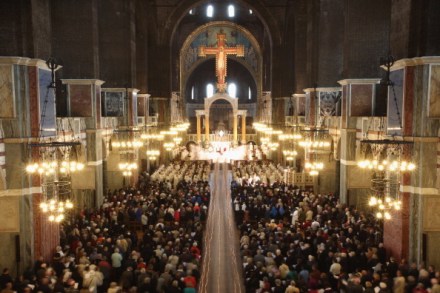The Wiki Man: Double crossed
There is no shortage of competitors for the strangest site on the internet. ‘The Britney Spears Guide to Semiconductor Physics’, for instance. Or gooseduds.com — an essential website (essential, that is, if you have ornamental garden geese and feel the urge to dress them in seasonal clothes). Or hatsofmeat.com, a website that shows exactly what its name suggests. But, after 18 years of surfing the web, last week I stumbled on a page more ridiculous than any of these. I live in Kent. Getting to Heathrow is a nuisance. The south-western stretch of the M25 is often congested, and the journey is made slower by Surrey’s habit of imposing random














